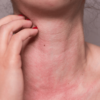What Is PCOD/PCOS and How Can It Be Managed?
Polycystic Ovary Syndrome (PCOS) and Polycystic Ovary Disease (PCOD) are common hormonal disorders that affect individuals of reproductive age. These conditions can lead to a variety of symptoms, including irregular periods, weight gain, and infertility. Early diagnosis and effective management can help improve overall health and quality of life.
What Is PCOD/PCOS?
PCOD (Polycystic Ovary Disease): A condition where the ovaries produce an excessive number of immature or partially mature eggs, which may turn into cysts over time.
PCOS (Polycystic Ovary Syndrome): A hormonal imbalance characterized by irregular menstrual cycles, high androgen levels, and multiple small cysts in the ovaries.
While PCOD and PCOS are often used interchangeably, PCOS is a more severe form of the condition, involving broader metabolic and hormonal effects.
What Causes PCOD/PCOS?
The exact cause of PCOD/PCOS is unknown, but several factors contribute to its development:
Hormonal Imbalance: Excess androgens (male hormones) can interfere with ovulation and cause symptoms like acne and excessive hair growth.
Insulin Resistance: Insulin resistance increases insulin levels, which can lead to weight gain and trigger excess androgen production.
Genetics: A family history of PCOD/PCOS may increase your risk.
Inflammation: Low-grade inflammation can stimulate the ovaries to produce androgens.
Lifestyle Factors: Poor diet, lack of exercise, and obesity can worsen PCOD/PCOS symptoms.
Symptoms of PCOD/PCOS
The symptoms of PCOD/PCOS can vary from person to person but may include:
Irregular or missed periods.
Excessive facial and body hair (hirsutism).
Acne, oily skin, or dandruff.
Weight gain or difficulty losing weight.
Thinning hair or hair loss from the scalp.
Dark patches on the skin (acanthosis nigricans).
Difficulty conceiving or infertility.
Mood swings, depression, or anxiety.
Symptoms of PCOD/PCOS
The symptoms of PCOD/PCOS can vary from person to person but may include:
Irregular or missed periods.
Excessive facial and body hair (hirsutism).
Acne, oily skin, or dandruff.
Weight gain or difficulty losing weight.
Thinning hair or hair loss from the scalp.
Dark patches on the skin (acanthosis nigricans).
Difficulty conceiving or infertility.
Mood swings, depression, or anxiety.
Health Complications of PCOD/PCOS
If left unmanaged, PCOD/PCOS can lead to serious health complications, including:
Type 2 diabetes.
High blood pressure and cardiovascular disease.
Endometrial hyperplasia and cancer.
Obesity and metabolic syndrome.
Sleep apnea.
Infertility or pregnancy complications.
How Is PCOD/PCOS Diagnosed?
To diagnose PCOD/PCOS, a healthcare professional may:
Evaluate Symptoms: Assess menstrual patterns, weight changes, and hair growth.
Conduct Blood Tests: Check hormone levels, blood sugar, and cholesterol levels.
Perform Ultrasound: Examine the ovaries for cysts and measure endometrial thickness.
How to Manage PCOD/PCOS
While there is no permanent cure for PCOD/PCOS, its symptoms can be effectively managed through lifestyle changes, medications, and holistic treatments. Here are some key approaches:
1. Lifestyle Modifications
Balanced Diet: Focus on whole foods, high-fiber vegetables, lean proteins, and healthy fats.
Regular Exercise: Aim for at least 30 minutes of physical activity daily to improve insulin sensitivity and manage weight.
Weight Management: Losing even 5-10% of body weight can significantly improve symptoms.
Stress Reduction: Practice yoga, meditation, or deep breathing exercises to manage stress.
2. Medications
Oral Contraceptives: Regulate menstrual cycles and reduce androgen levels.
Metformin: Improves insulin resistance and aids weight loss.
Anti-Androgen Medications: Reduce excessive hair growth and acne.
Fertility Medications: Help induce ovulation for women trying to conceive.
3. Holistic Treatments
Homeopathy: Personalized homeopathic treatments can address the root cause of hormonal imbalance and improve overall well-being.
Herbal Remedies: Supplements like spearmint tea, cinnamon, and omega-3 fatty acids may provide symptom relief.
Acupuncture: May help restore hormonal balance and improve ovulatory function.
Diet Tips for PCOD/PCOS
Include high-fiber foods like green leafy vegetables, oats, and lentils to regulate blood sugar levels.
Consume low glycemic index (GI) foods to avoid blood sugar spikes.
Opt for healthy fats like avocados, nuts, seeds, and olive oil.
Limit processed foods, sugar, and refined carbohydrates.
Stay hydrated and avoid sugary drinks.
When to Seek Medical Help
You should consult a doctor if you:
Have irregular, heavy, or missed periods.
Experience severe acne, excessive hair growth, or sudden weight gain.
Are unable to conceive after trying for several months.
Notice symptoms worsening despite lifestyle changes.
Conclusion
PCOD/PCOS is a manageable condition with the right combination of lifestyle changes, medical treatments, and holistic care. At Rise & Shine Medical Center, our team of experienced practitioners provides personalized care to help address the root cause of PCOD/PCOS and restore hormonal balance. If you are experiencing symptoms of PCOD/PCOS, schedule a consultation today to take charge of your health and well-being.



